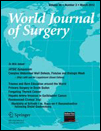Primary Surgery in Rural Areas of Southern Sudan
Abstract
Background
We report through a retrospective analysis our experience of providing surgical care and on-the-job training through mobile surgical missions in southern Sudan during the post conflict period between 2005 and 2009.
Methods
Three surgical teams conducted 23 missions in 5 primary health care centers sited in remote areas of southern Sudan. King’s analytical framework for surgical care in developing countries is adopted to evaluate the appropriateness of services rendered. Exact logistic regression was performed to investigate differences in mortality depending on the level of training of the operators and anesthetists.
Results
A total of 1,543 patients were operated on during a 5 year period, of which 9 (0.58%) died. The majority of operations were elective surgery cases (which may help contextualize the exceptionally low mortality rate). Several adaptations to surgical techniques adopted and preoperative and postoperative care were required. There were no statistically significant differences in mortality between operations performed by expatriate specialists and local midlevel providers with lower level training.
Conclusions
This experience in southern Sudan demonstrates that surgical services can be established utilizing simple facilities and equipment and employing local personnel selected and trained on-the-job by teams composed of a consultant surgeon, anesthetist, and scrub nurse. Delegation of tasks relating to anesthesia and surgery to midlevel health providers is an appropriate approach in developing countries facing shortage and maldistribution of more qualified health workers.




